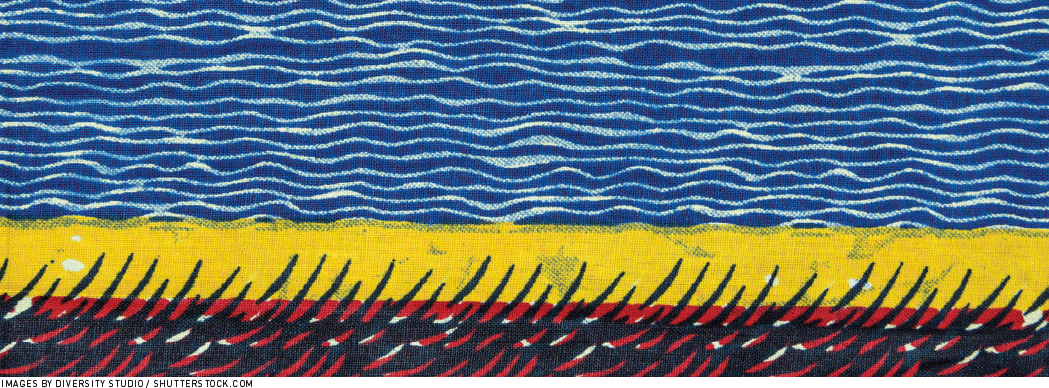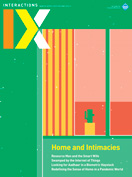Authors:
Daniela Rosner
In "Context, Culture, and Fabulations: In Search of a Home for Our Veiled African Design Stories" Hafeni Mthoko, Muhammad Adamu, and Shaimaa Lazem tell a compelling story of trying to identify and articulate an epistemic "home," a reflexive search for what is unique to African HCI. We learn that this search revealed the important work of abandoning the accommodation of Western notions of use, context, or legitimacy in their formulations of knowledge. Instead, they argue for opening new forms of speculative accountability—in their words, "a movement toward understanding the discursive conditions that give rise to specific narratives being told or untold."
For Mthoko, Adamu, and Lazem, this movement involves at least two steps: first, examining the absences in design analyses, such as nondigital developments in digital gaming (Lazem); second, looking at what local specificities render African life knowable, such as forms of communication through storytelling (Mthoko). Together, these procedures make space for acknowledging that even if design is a future-oriented discipline, it relies critically on the past.
This reliance is tricky. When forms of historicity enter the scene, they tend to get naturalized as facts rather than horizons to which our design methods might be accountable. As science and technology studies scholar Clapperton Chakanetsa Mavhunga observes, "Although there is now a large body of social science and humanities literature on technology design and use relating to the Global North, Africa is made conspicuous by its absence from the discussion. When it is included, it comes into the story only as a recipient of technology transfer from the North or as a victim of (Western and colonial) technology or its appropriators" [1].
The turn to critical fabulation references Saidiya Hartman's profound transformation of that approach. In her theorizing of Black female subjectivity, Hartman points to questions rather than answers; fictions inside facts, fabulations over fabrications. And in these creative maneuvers, she treats the work of historiography as one of relating otherwise, articulating new forms of comprehension and connection.
In thinking through absences, Mthoko, Adamu, and Lazem honor Hartman's critical fabulation as a mode of historical reimagining—"(re)present[ing] the sequence of events through rewriting against our recollection of the records," they explain. Here, fabulating holds lessons for the classroom within and beyond African institutions. It shows how expanding the pedagogical toolbox might require not only a range of new situated case studies but also new situated approaches to connecting, interpreting, retelling, and rewriting those stories. Fabulating design across a geographically diverse set of communities means learning how to reimagine this shared process with students.
As design pedagogy, then, fabulation describes a movement that inquires in place, a practice focused less on resolutions, and more on the unknown and unknowable. In a recent XRDS article, HCI scholar Leslie Coney gestures at this critical repositioning: "[M]y new and diverse perspective…allows me to explore not only unanswered questions, but also unquestioned answers" [2]. By returning to the unquestioned answers, Mthoko and colleagues tell stories from another side.
1. Mavhunga, C.C., ed. What Do Science, Technology, and Innovation Mean from Africa? The MIT Press, 2017.
2. Coney, L. Why you being WEIRD to me? Reflections of a black researcher on WEIRD-ness in HCI. XRDS 28, 4 (2022), 12–17.
Daniela Rosner is an associate professor in human-centered design and engineering (HCDE) at the University of Washington and codirector of the Tactile and Tactical Design (TAT) Lab. Her research critically investigates the ethical and participatory dimensions of design methods, particularly within sites such as electronics maintenance and needlecraft that have been historically marginalized within engineering cultures. She is the author of Critical Fabulations: Reworking the Methods and Margins of Design (MIT Press). [email protected]
Copyright held by author
The Digital Library is published by the Association for Computing Machinery. Copyright © 2023 ACM, Inc.









Post Comment
No Comments Found